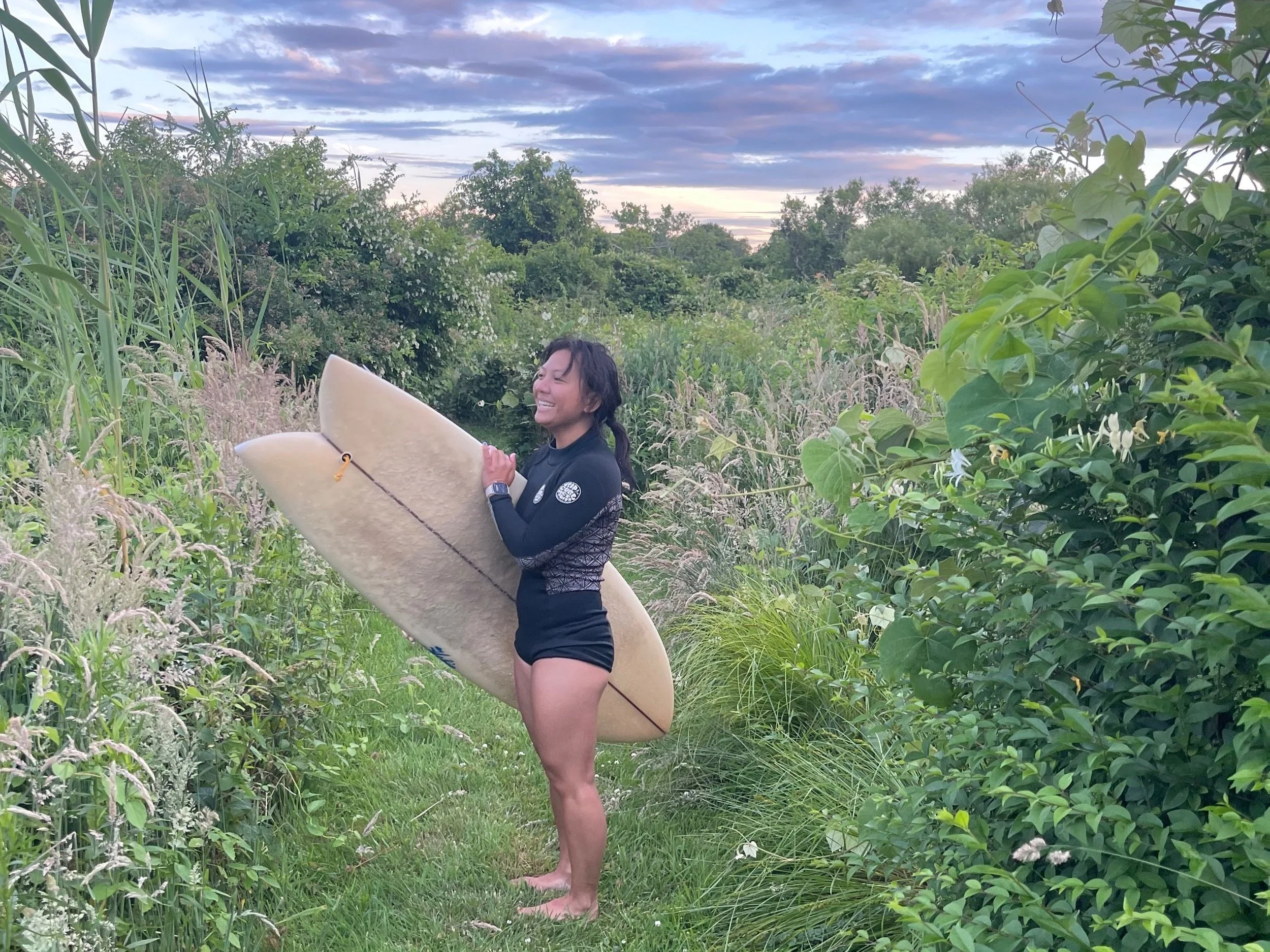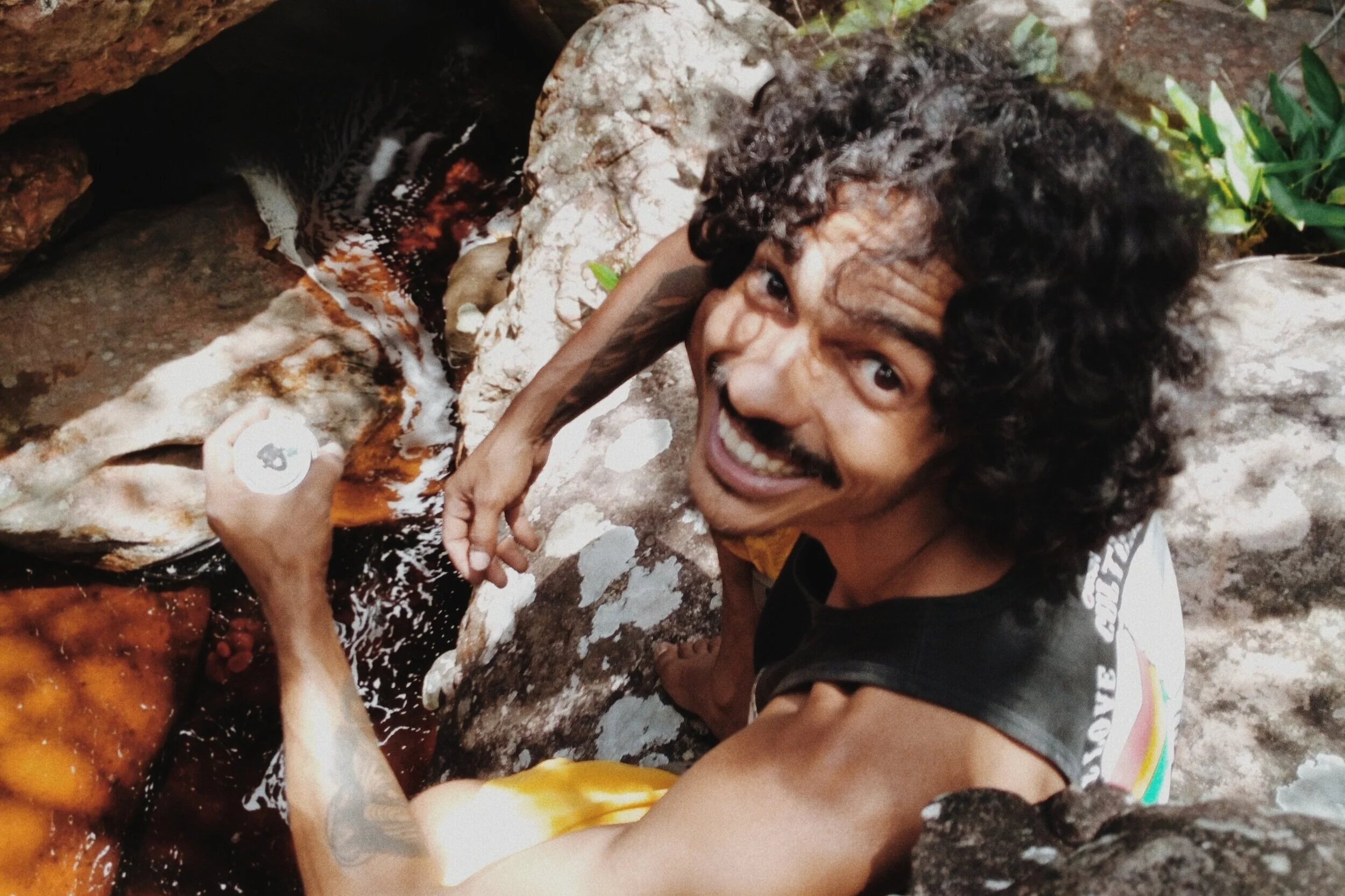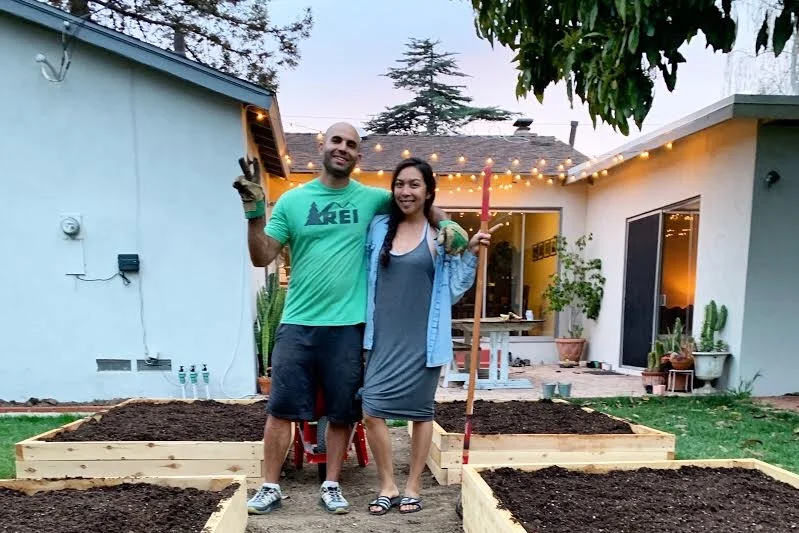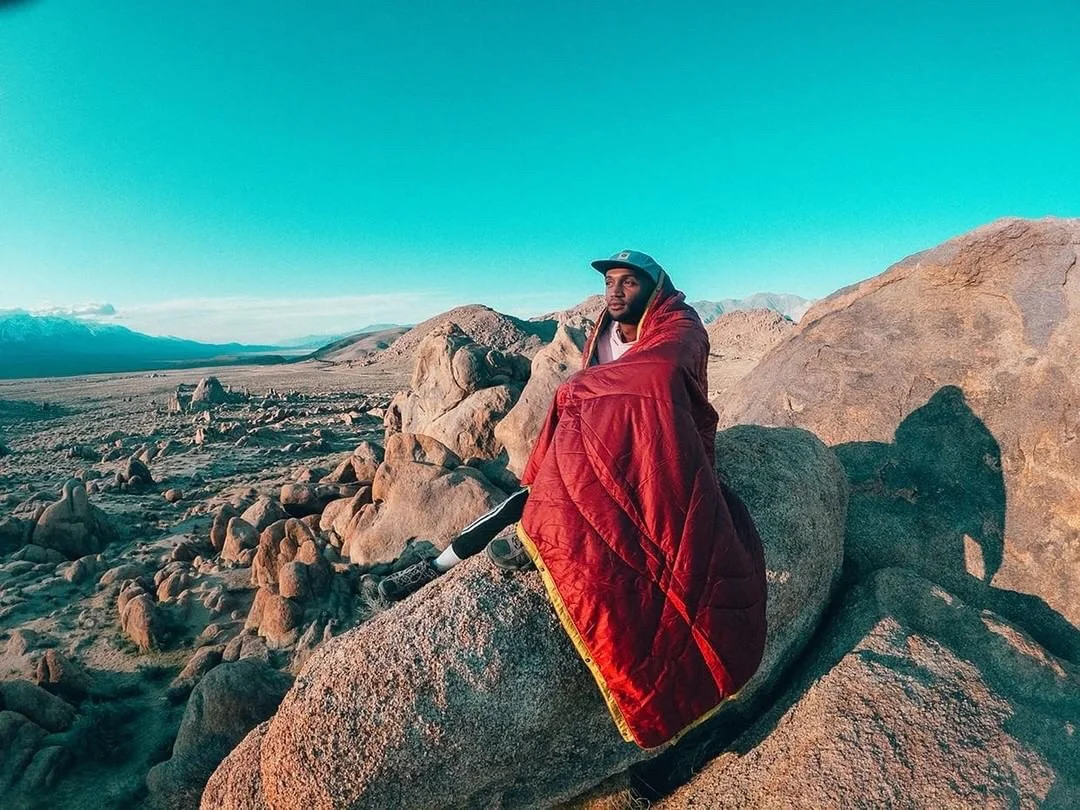Slow Living, Grief and Microfarming: One Family's Labor of Love
The author and her family honor their combined Persian, Filipinx, Western European and North African roots through growing their own food and preparing traditional meals. Photo courtesy of Janelle Hill
What does your family look like?
We are a multi-racial family with Iranian, Visayan, Western European, and North African roots. We honor these roots in the seeds we plant, and in the traditional homecooked meals we prepare using organically grown produce from our microfarm. We honor our roots by sharing these meals with family and friends.
In addition to growing and preparing our own food, we do our best to embrace slow living. That doesn’t mean it’s easy to come by. Often times we are busy coordinating work, school and daycare schedules, homework assignments, doctors appointments and family engagements. Our family life also includes celebrating new moons, super moons, wildflowers, fall colors, seed starting, working the soil, planting seeds and harvesting. Repeat.
Even before we became a family of four, our family was synced with the seasons. My husband and I became engaged in the Fall around a campfire at Lake Cachuma in California. We married in Winter and were blessed with the arrival of two beautiful sons in the Spring. Summer nights are for gazing at the Milky Way as often as possible, in the darkest skies possible. And in between, we’re gardening, practicing slow living and loving hard.
Photo courtesy of Janelle Hill
Growing food reminds us to surrender to the cycle of life, death and rebirth. There is a time for sowing, a time for growing, a time for abundance, a time for burning, and a time for starting anew. In this process, we’re growing and transforming, too. On our permaculture microfarm, every relationship is valued. Nothing is wasted. Only transformed.
Our microfarm represents a place of solace and peace. Growing food represents hope. It keeps us grounded, literally and figuratively. It nourishes both the body and the spirit. It encourages us to eliminate the excess layers of who we’re told to be in order to become the rawest versions of ourselves. Microfarming enables us to recall our ancestral ties to the earth with our hands in the soil and our knees on the ground. Being outdoors and tending the earth is our version of church.
The kids understand the cyclical nature of the garden and play an integral role in its care. Their chores are many—and yet they’re always looking for more ways to get involved. They are in charge of the compost and turning the worm bin. They clean the chicken coop and ensure the manure gets right back into the compost, too. They help protect the flock and keep them safe from predators. Our sons also deadhead flowers to encourage new growth, water and repot plants, collect and dry seeds and harvest veggies for our meals. As they sow the next round of seeds in our succession planting, we are teaching them to thank the earth for her bounty. And we are equally thankful as we watch our boys grow older alongside their plant relatives.
Our vegetables grow in abundance! Perhaps, because of that, we are often asked if we use miracle grow or secret plant food. The truth is my tears and grief nourished this soil, and in return the bounty nourishes our family. When we lost my oldest nephew to suicide in 2017, it was in the garden that I felt most at peace. Safe. It was there that I pounded my fists into the ground in anger, despair, regret. I poured my grief into the soil, seeking forgiveness. It was the garden that reminded me there is hope in the face of tragedy. Good things can and will still grow.
The author and her son pose for a photo in front of a boxed planter. Photo courtesy of Janelle Hill
When we were hit by a drunk driver on the way home from camping, the garden was where I grieved the woman I had been. The body I had. The physical abilities I had relied on. And it was in the garden where I sat, and cried daily, from the chronic pain of my injuries and the emotional pain of the trauma we endured. It was also there that I learned to slow down and to thank my body for all that it had accomplished—from growing two children, to carrying them up peaks and down canyons. My body and my grief are what allow me to grow the very food and medicines that continue to sustain us. And eventually, it was through gardening and physical training that I regained my strength.
The garden reminds me that there is always more to come. With each ending, there is a new season of beginnings and possibilities. In the midst of grief, there remains the opportunity for surprise—for lighthearted moments, such as the unexpected blooming of wildflowers courtesy of the many birds and insects which help pollinate our garden. The unexpected bursts of color, in turn, bring more pollinators, more color, more joy into our garden—and the cycle of life, death and rebirth continue. This would not have been possible without the initial grief and labor in clearing and working the soil. In this rawness and surrender, we opened up our hearts and the ground to possibilities for growth.
When we are not working on our permaculture microfarm, we are finding other opportunities to stay connected to the land by camping, hiking, backpacking and taking landscape photos. And when we are home, the greatest joy is working the soil and sharing our harvest with neighbors, strangers and loved ones. This garden saved me in more ways than one. And we will continue to share its harvest and bounty. I surrender to the possibilities. And we’ll keep growing in the meantime.
Film Project
Melanin Base Camp is partnering with Beast Fingers Climbing to produce a short film about climbing phenomenon Sabrina Chapman and we need your help. Click here to learn more, or check out our Kickstarter campaign.





























Which made me start to question, where do we fit into these predominantly white outdoor film narratives?